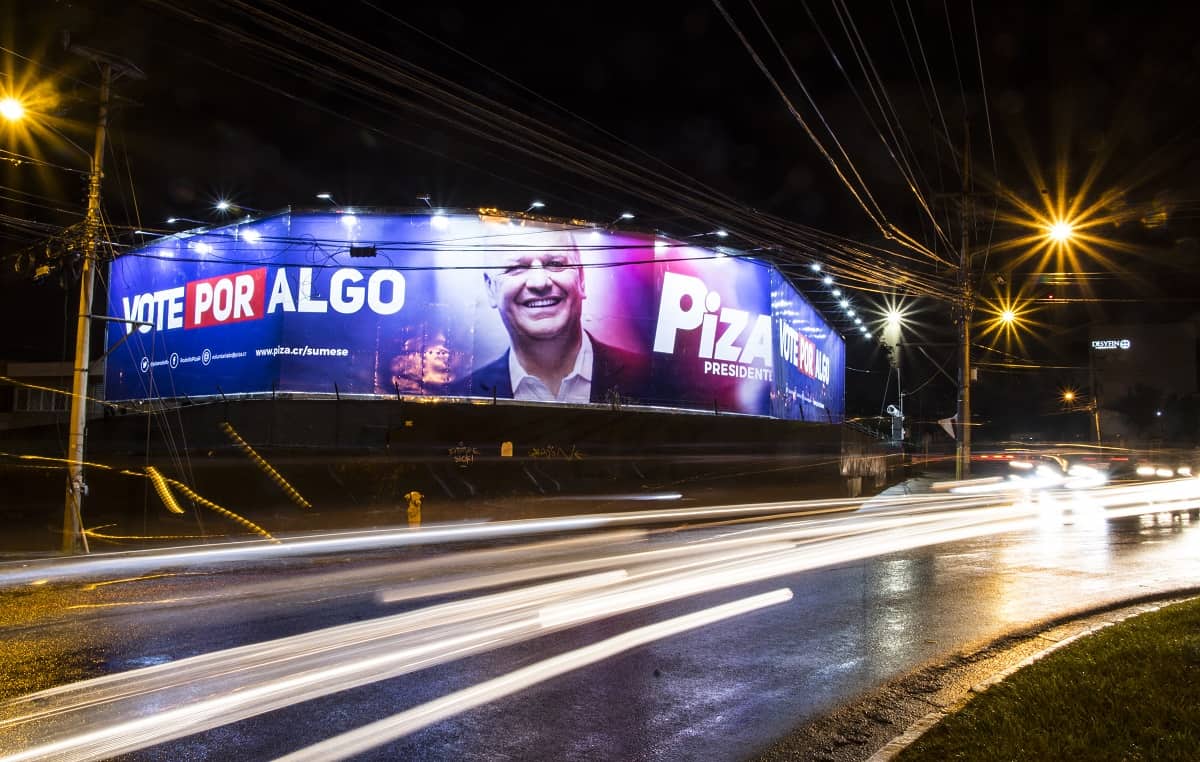Costa Ricans will head to the voting booth on Feb. 4 to choose their next president and 57 members for the Legislative Assembly – and polling trends suggest that a significant percentage of them will make their final decisions just weeks, days, or possibly hours before they make their mark on history.
The following are four key elements to understanding the electoral process in Costa Rica, where 3.2 million people will be eligible to choose among 13 candidates for the presidency.
Open election
Opinion polls show that close to 30 percent of the electorate is still undecided in the final stretch of the contest.
An OPol survey for the internet news site Elmundo.cr, published on Jan. 16, showed that 28.2 percent of those consulted have not decided who to vote for.
That poll put the two front-runners in a dead heat, well within the margin of error: Antonio Álvarez Desanti, a former Cabinet minister and legislator from the National Liberation Party (PLN), was in the lead with 14 percent, closely followed by the criminal defense attorney Juan Diego Castro, a former Security and Justice Minister, with 13.5 percent. Castro has led the field in recent polls from other sources.
Neither candidate appears anywhere near the 40 percent minimum required to win in the first round of voting. If no one crosses that mark, the country would head to a second round on April 1.
OPol’s poll was conducted from Jan. 9-11 with a sample size of 2,875 people and a margin of error of 1.8 points.
“The candidates who are in first and second place are within reach of those who are in fourth or fifth place,” said political scientist Alberto Cortés from the University of Costa Rica. “This reflects an electoral behavior pattern with a high degree of volatility.”
Costa Rica approaches presidential elections with an uncertain scenario
The end of bipartisanship
The 2014 presidential election, in which current President Luis Guillermo Solís from the Citizen Action Party (PAC) emerged victorious, marked the end of a bipartisan balance that dominated Costa Rican elections since the 1950s,
Before that, power rotated fairly evenly between the PLN and its opposition, the Social Christian Unity Party (PUSC).
“When bipartisanship existed, the decision was made beforehand because the population was divided between the two big parties. When this breaks, the elements with which people choose their candidates begin changing, other criteria emerge,” said Gustavo Araya, a political scientist from the Latin America’s Social Sciences Faculty.
He added, “We’re in an undefined moment for the population.”
Gay marriage
With this volatile scenario, breaking news has influenced voters’ thinking. One example: the Inter-American Court of Human Rights’ ruling on Jan. 9 that member states, includign Costa Rica, must recognize same-sex marriage.
In response, the evangelical legislator and presidential candidate Fabricio Alvarado said that should he win the presidency, he’d withdraw Costa Rica from the Inter-American Court of Human Rights.
Social media analyst Esteban Mora reported that from Jan. 9-14, Alvarado registered an increase of 122 percent in the number of followers of his Facebook page, with an exponential spike in his social media interactions.
Costa Rica calls for compliance with international court ruling on gay marriage
Chinese cement
Something similar happened with Juan Diego Castro, from the tiny National Integration Party (PIN), whose law-and-order, “mano dura” rhetoric has allowed him to capitalize the indignation provoked by a scandal about the importation of Chinese cement, which exposed a traffic of influences network in the three powers of the estate.
According to analyst Gustavo Araya, this topic, which dominated headlines in late 2017, carries significant weight with the voters, but the candidates must vary their talking points in these final weeks because the cement scandal “already happened. It’s gone.”
The real reason the ‘cementazo’ is so scary for Costa Rica – and so important






